Documents Needed for a Self-Employed Mortgage
- You'll experience an unrivalled customer service
- We are an independently owned brokerage offering first charge mortgages from the whole of the market.
- You can contact us 24/7, we're always available to help
Whats on this page
Home » Self-Employed Mortgage » Documents Needed for a Self-Employed Mortgage
How does a Self-Employed mortgage differ from other mortgages?
Self-Employed mortgages are not a specific type of mortgage product and the term simply refers to when a Self-Employed applicant applies for any mortgage. There is actually no difference at all in the mortgage, just a slightly more incumbent application process.
As Self-Employed income is still viewed by Mortgage Lenders to be less stable than PAYE income, they use an average of your income over the most recent two to three years, to mitigate some of the perceived risk in lending to a Self Employed applicant.
From the applicant’s point of view, this just means that you will need to go further to prove your income, by providing evidence of earnings that cover the lender’s requested period of two to three years.
What specific documents do you need?
The documents will vary slightly by applicant, as it depends what type of Self-Employed work you participate in. Lenders can also have slightly different requirements, based on their individual criterias.
Regardless of your income, you will always need to provide current ID and proof of address when you apply for a mortgage. To prove your income, follow the guidance from the different Self-Employed business types below:
Limited Company Directors
Ordinarily, your personal income and dividends are used in support of your mortgage application, although a few lenders may also be willing to consider your net business profits.
In order to prove this income, you will need to provide the past two to three years worth of:
- Certified accounts
- SA302 tax calculations
- HMRC tax year overviews
- Business bank statements
- Projected income and business plans may also be requested, especially for small businesses or those with a shorter trading history
Partnership
Income derived from owning part of a business can only be considered where you own 25% or more. In this case, your share of the net business profits will be used.
To prove your income, see the list of documents for Limited Company Directors above.
Sole Traders or Freelancers
For those trading independently, it’s slightly more straightforward proof of income, as your personal income is the only thing to be considered. You will need to provide two to three years worth of:
- Certified accounts
- SA302 tax returns
Contractors
Contractors can have a hard time proving their income, although some lenders are willing to use an annualised version of your day-rate, if you earn one. To evidence your income, you will need two to three years of:
- Certified accounts
- SA302 forms
- It’s common to have to show proof of ongoing work availability, such as a signed contracts from clients
Speak To An Expert
Our highly experienced Advisers are ready to help you with either buying or remortgaging a home, protecting your property and lifestyle along with saving you time and effort, ensuring you have a competitive deal right for you.
How do you improve your chances of being accepted by a lender?
All applicants can benefit from some prior preparation leading up to a mortgage application. For Self-Employed applicants, however, it can be a key factor in successfully securing a mortgage offer.
These simple steps can strengthen your application and improve your chances of acceptance:
Credit score
- Make sure you maintain utility bill and credit card repayments etc in the run-up to your application
- Ensure you’re registered at your current address on the electoral roll
- As far as possible, attempt to repay any debts
- Don’t take any additional credit and keep existing credit agreements within 50% of their credit limit
Deposit
A typical minimum deposit requirement for a Standard Residential Mortgage is around 10%, unless you use a home ownership scheme, which can be as low as 5%. Whilst this requirement is no higher for Self-Employed applicants, you will certainly benefit from offering more, if you can afford to do so.
Financial preparation
If you do not ordinarily use an accountant, ensure that you have a fully qualified certified accountant sign off any accounts that are to be used in your mortgage application.
Speak to Yellow Brick Mortgages
At Yellow Brick Mortgages, we’ve helped many Self-Employed applicants secure a mortgage by assisting with the preparation. Our in-depth knowledge of lender criterias also allows us to guide you towards those lenders whose criteria you can most closely match, improving your chances of acceptance.
As we have access to such a broad spectrum of Mortgage Lenders, we can find competitive deals for Self-Employed borrowers with a wide range of job types and circumstances.
YOUR HOME MAY BE REPOSSESSED IF YOU DO NOT KEEP UP REPAYMENTS ON YOUR MORTGAGE.
Useful Links
- Self-Employed Mortgage
- Documents Needed for a Self-Employed Mortgage
- What Income do Mortgage Companies look at Self-employed
- Self Employed Mortgage with One Years Accounts
- Limited Company Directors
- Joint Mortgage Self-Employed
- Joint Mortgage – One Self-Employed Applicant
- Buy to Let Self-Employed Mortgage
- Contractor Mortgage
Why Yellow Brick Mortgages
- Unrivalled customer service
- We are an independently owned brokerage offering first charge mortgages from the whole of the market.
- Available 24/7 to ensure we are there to help when you need us.


